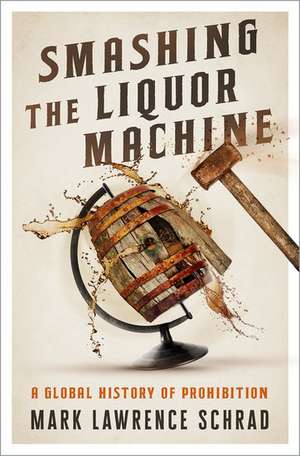Smashing the Liquor Machine: A Global History of Prohibition
Autor Mark Lawrence Schraden Limba Engleză Hardback – dec 2021
Preț: 195.01 lei
Preț vechi: 231.36 lei
-16% Nou
Puncte Express: 293
Preț estimativ în valută:
37.33€ • 39.22$ • 31.37£
37.33€ • 39.22$ • 31.37£
Carte disponibilă
Livrare economică 07-13 februarie
Livrare express 04-08 februarie pentru 104.37 lei
Preluare comenzi: 021 569.72.76
Specificații
ISBN-13: 9780190841577
ISBN-10: 0190841575
Pagini: 752
Dimensiuni: 160 x 238 x 60 mm
Greutate: 1.2 kg
Editura: Oxford University Press
Colecția OUP USA
Locul publicării:New York, United States
ISBN-10: 0190841575
Pagini: 752
Dimensiuni: 160 x 238 x 60 mm
Greutate: 1.2 kg
Editura: Oxford University Press
Colecția OUP USA
Locul publicării:New York, United States
Recenzii
In this groundbreaking, revisionist work on the history of temperance and prohibition. Schrad makes a compelling case that the temperance movement was not just an American phenomenon but "the most popular, most influential, and longest-lived international social-reform movement in the history of the world" (p. 9) ... This study will go a long way toward reorienting scholars' approach to temperance and prohibition.
Written in a lively style and with arguments presented clearly, if at times rather overemphatically, the book is an engaging and informative read which deserves to be in any serious historical library.
Written in a lively style and with arguments presented clearly, if at times rather overemphatically, the book is an engaging and informative read which deserves to be in any serious historical library.
Notă biografică
Mark Lawrence Schrad is an Associate Professor of Political Science at Villanova University. He is the author of The Political Power of Bad Ideas: Networks, Institutions, and the Global Prohibition Wave, which was published by Oxford University Press in 2010. His most recent book: Vodka Politics: Alcohol, Autocracy, and the Secret History of the Russian State (2014) has gone through two editions and has been translated into Polish, Slovak, Lithuanian, and Chinese.
